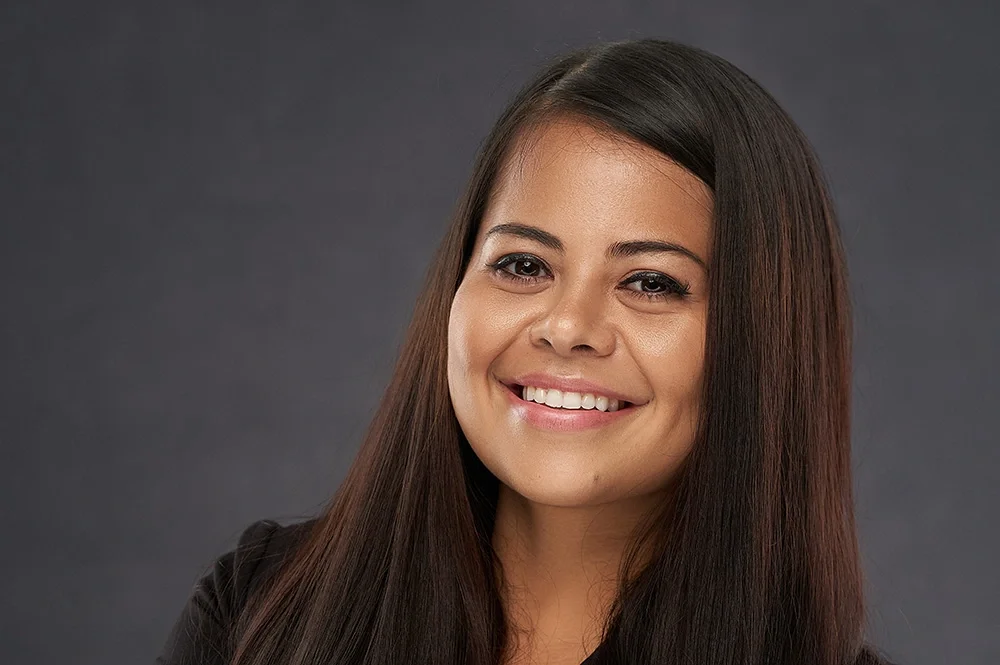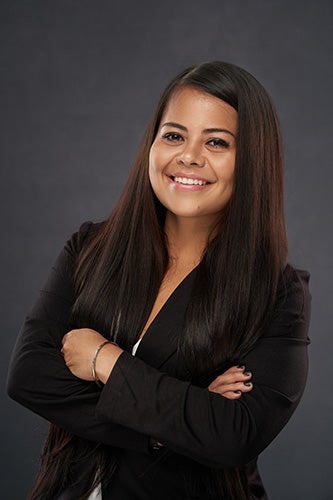

Violeta J. Rodriguez, professor of psychology in the department’s clinical/community division, recently received the National Institutes of Health Director’s Early Independence Award for early career researchers. She will use the funding to advance her innovative research on parenting and its impact on youth health outcomes. She joined the U of I in 2023.
What are you currently researching? Why are you passionate about this area of study?
I am currently researching parenting and its impact on youth health outcomes, particularly in ethnoracially minoritized populations. My project, "Optimizing the Assessment of Parenting: A Multi-Method and Multi-Informant Approach," aims to enhance existing assessments through qualitative interviews and advanced psychometric methods, like unsupervised machine learning and text modeling, to make them more representative of groups historically excluded from research (ethnoracial minorities, monolingual Spanish speaking parents). I am passionate about this area of study because I believe that effective parenting interventions can significantly improve the health and well-being of children. Understanding diverse parenting experiences is crucial for developing tailored strategies that genuinely support families from different backgrounds.
I am excited to continue my research and contribute to the understanding of parenting practices in diverse populations. I believe that our work can lead to meaningful improvements in family support systems and health outcomes for children.
What’s a challenge you faced to better understand your research?
One significant challenge I faced was ensuring that my research accurately reflects the experiences of ethnoracially diverse parents. To overcome this, I engaged in community outreach and collaboration with local organizations to gain insights and build trust within these communities. This process not only enriched my research but also helped me develop a more inclusive approach to data collection and analysis. This also extends to making sure that the research team that I work with is able to work with ethnoracially diverse parents.
What’s a moment when your professional career changed direction?
A pivotal moment in my career was during my doctoral research when I realized I needed to extend my focus from general parenting practices to specifically addressing the needs of sexual and gender minority (SGM) parents and considering the intersectional experiences of being both an SGM and an ethnoracial minority. I haven’t done this by myself though – I have done this with collaborators who focus on SGM populations like my colleague and friend Dr. Qimin Liu at Boston University. This change stemmed from recognizing a significant gap in the literature and the urgent need for research that supports these families. It was a transformative experience that deepened my commitment to inclusivity in psychological research and challenged me to think about my research critically.
What kinds of lessons do you impart on your students?
I emphasize the importance of cultural competence and ethical responsibility in research. I encourage my students to critically examine their assumptions and biases and to strive for inclusivity in their work. I also stress the value of interdisciplinary collaboration, as diverse perspectives can lead to more innovative solutions to complex problems.
What was one of your first jobs? How did it affect your decision to become a professor?
One of my first jobs was as a receptionist at a child clinic at my undergraduate institution (Florida International University Center for Children and Families). This experience was instrumental in shaping my career path. It provided me with valuable hands-on research experience and deepened my passion for understanding the social determinants of health, as I interacted with everyone coming through the clinic. Additionally, it underscored the significance of mentorship, as at the time I was also working on my thesis with Dr. Jeremy Pettit, which inspired me to cultivate supportive relationships with my students as I guide them through their academic journeys.
What is your most significant achievement? How did it affect your career?
My proudest achievement to date is receiving the NIH Early Independence Award. This recognition has provided vital funding for my research and signifies a significant vote of confidence in the importance and potential impact of my program of research. It has enabled me to broaden my research scope, ultimately enhancing the relevance of my contributions to the field through the use of multi-informant and multi-method approaches. I also take great pride in the fact that, as a psychologist, I am among a select group of awardees, as this honor is typically awarded to scholars in the hard sciences. I truly feel honored to be recognized in this way.
Editor's note: Read other LAS Experts series here.


